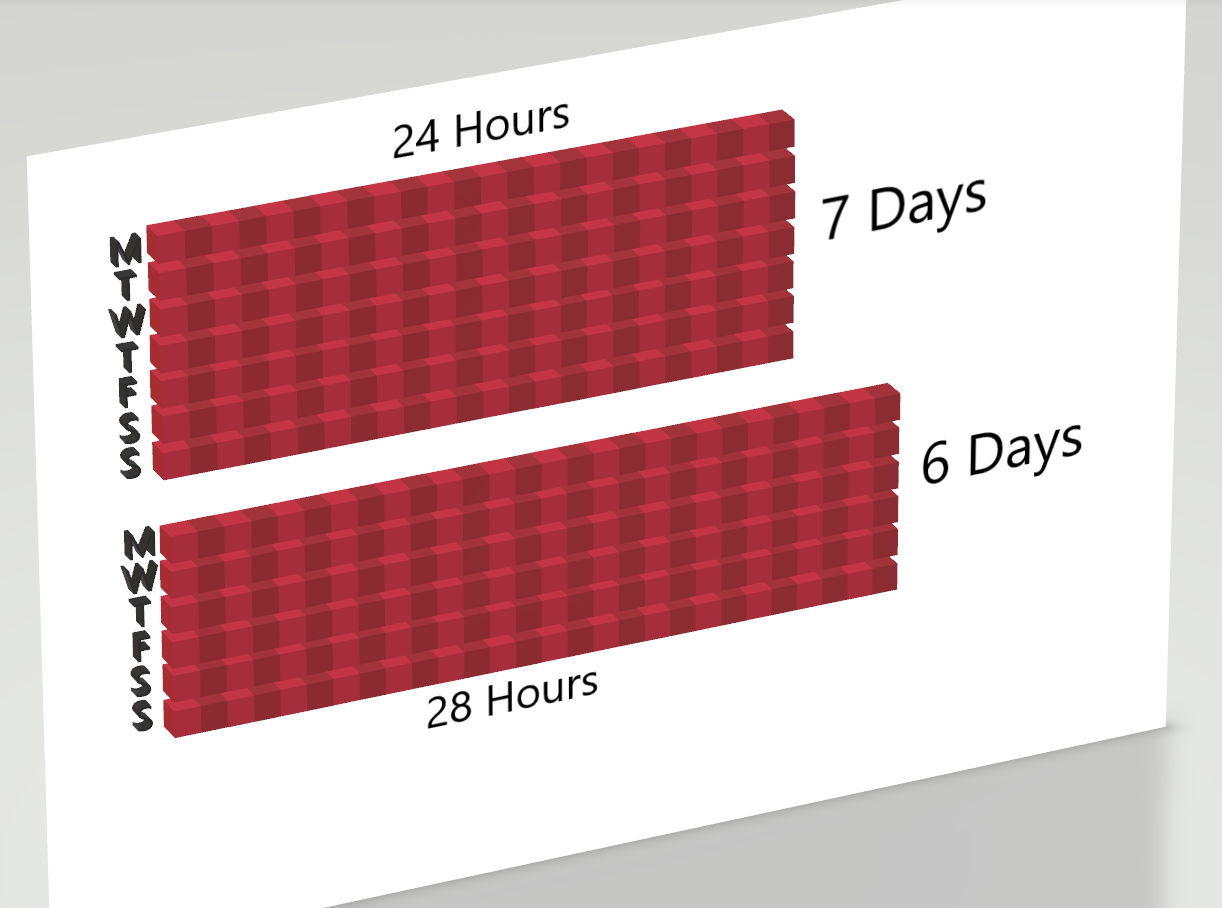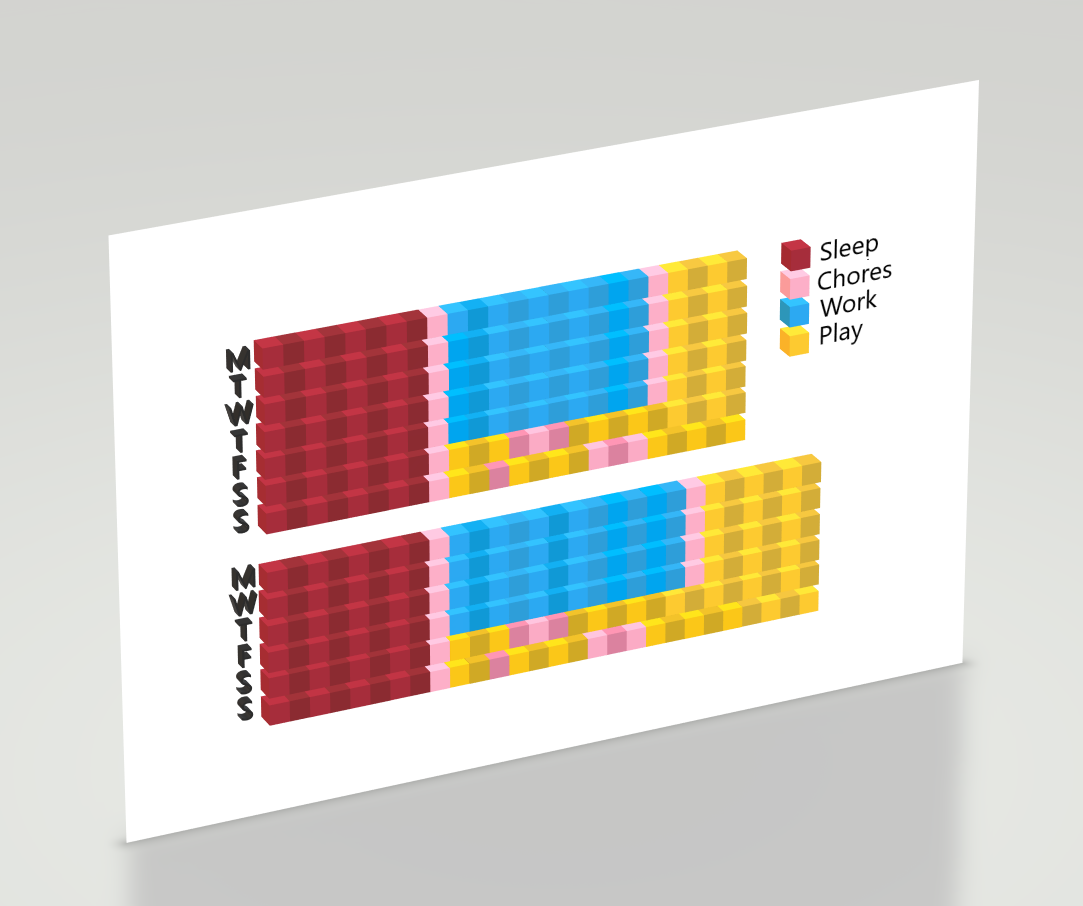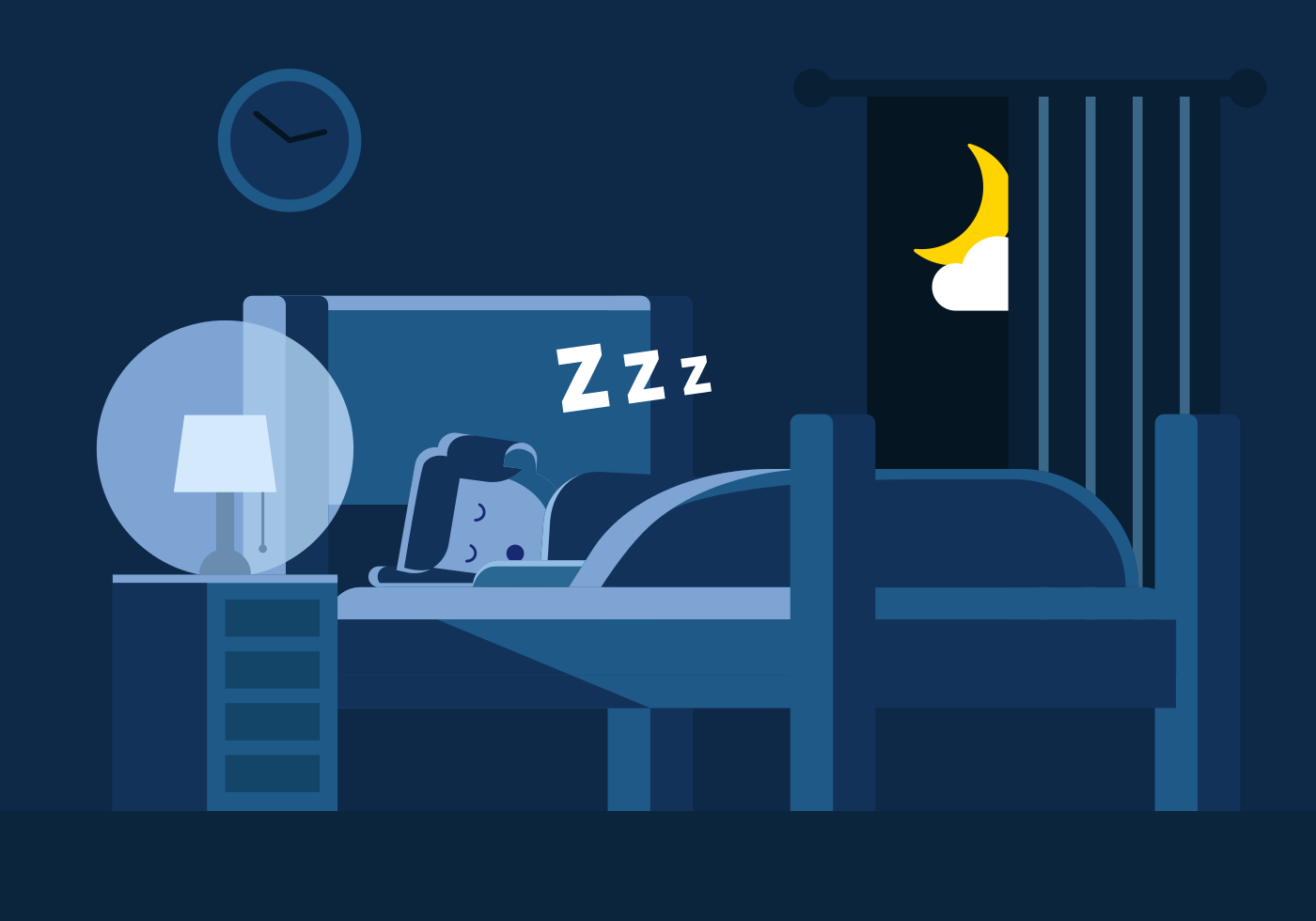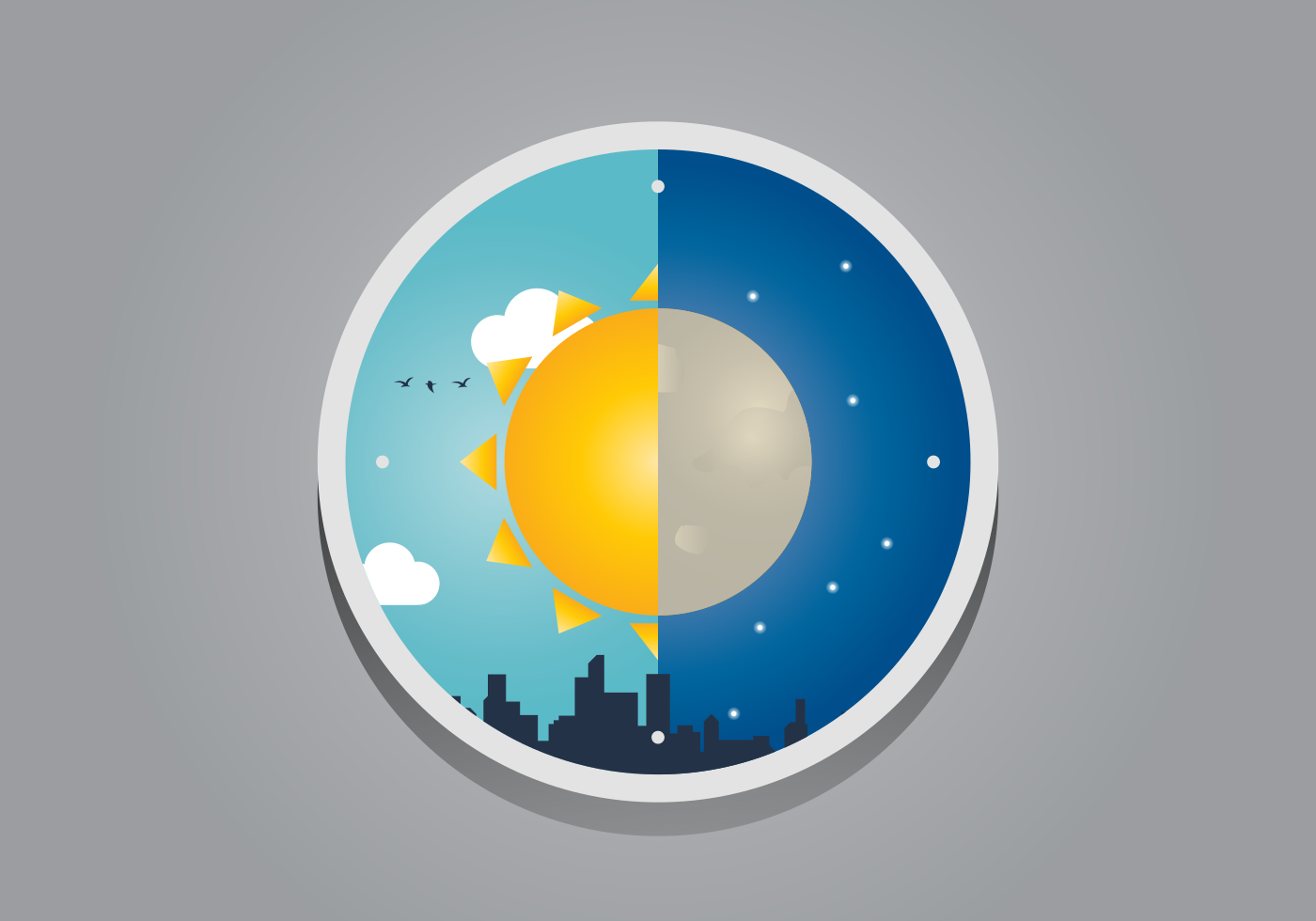What about the sun? The day/night cycle?
Another effect that may appear an issue at first glance is the day/night cycle.
With our new 28 hour days, we will get out of synch with the sun. Sometimes we will be getting up at night, or going to bed when it's getting light.
Well, I'm sorry to say it, but with time-zones and people living at high latitudes, most of that is old news already. If our tracking of time was accurate, we would expect the sun to reach its zenith at 12.00 midday. But in Eastport, Maine the sun peaks and starts heading for the horizon at 11.28 am. Whereas in White Pine, Michigan the sun doesn't reach its height until 12.58 pm, 90 minutes later. In the same time-zone!
And if you live in northern latitudes you find that your days and nights expand and contract like a squeezebox. You don't even need to travel to Scandinavia. The good people of Hamburg, in Germany will see only 6 hours 57 minutes of night on 20th June 2020, and only 7 hours 27 minutes of daylight on the 21st December.
I, like many people often find myself going to work in the dark, working far from natural light and then going home, in the dark. Again.
Is continuing to pay lip service to the sun really that important?










